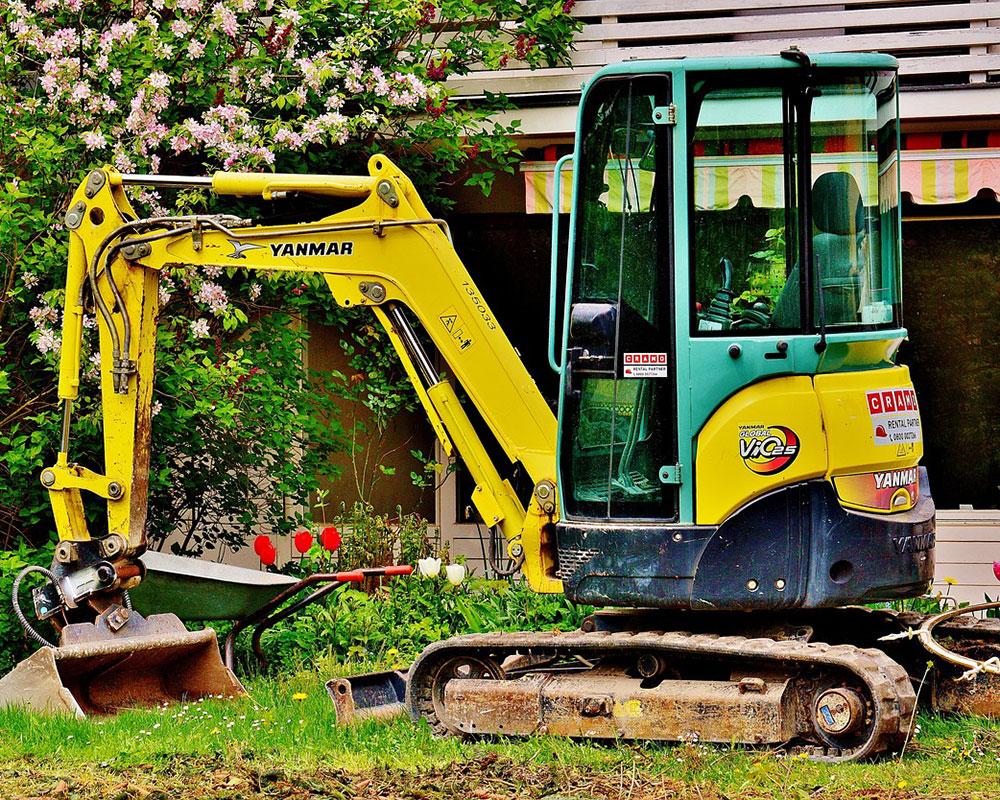
Serving Texas Counties: Collin, Grayson, Dallas, Denton, Rockwall, Fannin and Hunt
Residential Excavation Company Near Denton County, Texas
Total Septic is Committed to superior quality and results!

AVOID COSTLY MISTAKES:
Do NOT hire an excavating contractor without first reading our free guide:
The ULTIMATE Excavation & Septic "Success Guide."

Residential Excavation Company Near Denton County, Texas
Planning a new home, addition, detached garage, barn, or serious landscape makeover in Denton County starts with the ground. Soil, slope, drainage, and utilities determine whether your project glides forward or stalls out. A Residential Excavation Company Near Denton County, Texas, turns a raw lot into a safe, stable, code-compliant base so every trade that follows can work efficiently, pass inspections, and hit deadlines.
How Can We Help?


Benefits of Hiring a Residential Excavation Company Near Denton County
Local expertise matters. Crews who work across Denton County and North Texas know how expansive clay, caliche seams, and seasonal moisture affect subgrade performance. They select the right cut and fill strategy, moisture conditioning, and compaction standard to resist heave, settlement, and rutting. They also know the permitting rhythm—setbacks, driveway connections, culvert sizing, erosion controls, and inspection checkpoints—so you avoid repeat visits and costly delays.
A professional plan protects your budget. Accurate takeoffs, realistic production rates, and clear allowances for rock, undercut, or additional haul keep change orders under control. Equipment selection is optimized around access and volumes, preventing fuel waste and idle labor. Safety risk drops, too. Utility locates are requested, lines are daylighted before trenching, and OSHA trench safety keeps people and property protected.
There are everyday benefits you will feel after the crews leave. Thoughtful grading sheds water away from the foundation. Smart drainage—swales, French drains, and downspout routing—protects lawn, patios, and paths. Elevations, benchmarks, and compaction targets are recorded, making quality verifiable instead of guesswork. Documentation makes quality measurable for everyone on site.
Services Typically Included in Texas
Homeowners in Denton County can expect a full spectrum of residential excavation services: lot clearing and grubbing; removal of small structures or slabs; topsoil stripping and stockpiling; rough and fine grading; pad construction for homes, shops, and accessory dwelling units; trenching for water, sewer, gas, and electrical; driveway construction with compacted base; culvert installation for bar ditches; French drains and surface drainage improvements; retaining walls and slope shaping; and final grading ready for sod or seed.
How to Evaluate Bids the Smart Way
Compare scope, not just price. A strong proposal references a grading plan or markups that show limits of disturbance, target elevations, and drainage paths. It lists quantities for cut, fill, and haul, and the compaction criteria. Expect allowances or unit rates for rock, unsuitable soils, and extended haul. Ask about moisture conditioning, proof-rolls, and who pays if a geotechnical report recommends changes. Verify insurance limits, request recent local references, and confirm warranty terms.
See Our Excavation & Septic Services

✔️ Commercial Excavation
✔️ Residential Excavation
✔️ Demolition
✔️ Dozer work
✔️ Septic inspections
✔️ Septic system pumping
✔️ Septic installs traditional systems
✔️ Septic tanks - aerobic systems
✔️ Septic tanks - Plastic/poly
Quality Services Launched FAST!

✔️ Septic tanks - Concrete
✔️ Sewer repairs
✔️ Trenching
✔️ Utilities Trenching
✔️ Pump Outs Installs
✔️ Maintenance Contracts
What Are You Waiting For?
The Process for Hiring a Residential Excavation Company Near Denton County, Texas
Start with discovery. Share your survey, concept drawings, and any geotechnical report. Add photos showing access points, trees to protect, fence lines, and nearby utilities. Next comes the site walk. The team checks slopes, soil clues, easements, and drainage patterns, then discusses options to reach your target finish grade.
From there, expect a clear scope tied to a simple plan: benchmarks, volumes, haul strategy, erosion controls, and a sequence that respects Texas weather. A straightforward contract follows, with milestones, change-order rules, and a start window connected to utility locates and permits. Before mobilization, complete a short checklist: mark setbacks and save trees, notify neighbors about trucks and early starts, and establish staging for materials, spoils, and equipment.
Fieldwork begins with erosion control and access protection, then clearing, stripping, and rough grading. Utilities are trenched safely, bedded, and backfilled to spec. Culverts and drains are set to designed slopes, and bases are compacted. Pad and driveway construction proceeds once subgrade density meets the standard. The project wraps with final grading, cleanup, and a walk-through to confirm drainage away from the house and to note any punch-list items.
Timeline and Budget Factors in Denton County
Three variables drive cost and duration: weather, access, and soils. Rain pauses compaction and can require reconditioning the subgrade. Tight backyard work often means smaller machines and more labor hours. Unsuitable materials, rock, or long haul distances add cost. Good proposals identify these risks early and explain how they will be priced if encountered. That transparency helps you compare options fairly and invest where performance matters most over the life of the home.
Permits, Inspections, and Local Awareness
Denton County and nearby cities commonly require erosion control measures, driveway tie-ins to county roads, culvert sizing at bar ditches, and sidewalk or curb protection. A local excavation partner coordinates utility locates, understands stormwater behavior on clay soils, and sets grades that protect your lot and downstream neighbors. That insight lowers the chance of inspector red-tags and keeps your schedule intact.
Checklist to Hire a Residential Excavation Company Near Denton County
Use this quick checklist to decide with confidence. Verify active insurance and appropriate licenses. Ask for two recent projects in Denton County and one outside city limits to see how crews adapt to different sites. Confirm who calls utility locates and how conflicts are handled if lines cross a proposed pad. Request moisture-conditioning and compaction targets in writing, along with the test method and acceptance criteria. Review the haul plan, dump sites, and traffic routes to protect neighborhood roads. Clarify who maintains erosion controls and street sweeping, how daily cleanup is handled, and what the final walk-through includes.
Ready to Break Ground?
Your project deserves a solid start. By selecting a Residential Excavation Company Near Denton County, Texas that plans carefully, documents thoroughly, and communicates clearly, you gain a stable site, smoother inspections, and fewer surprises. Begin with a site walk, ask precise questions, and choose the team that explains the “why,” not just the “how.” With the right preparation, your build in Denton County, Texas, will stand on firm ground for years to come.
Facebook
Google Plus